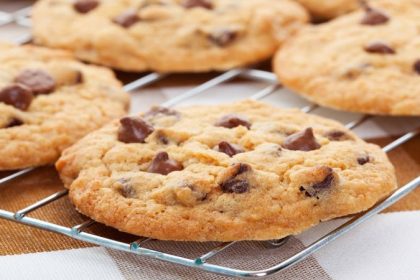Fasting in hot and long summer days is a little different from other seasons. You get thirsty quickly, and if you are busy, you will face a decrease in energy and physical activities during the day. Fasting is worship and training to endure hardships, and if you don’t apply the tips of fasting well, you will go through difficult days. So, if you want to pass the month of Ramadan with complete health, we suggest useful ways for your health in this month.
It is forbidden not to eat breakfast
Many people fast without eating suhoor and do not think about the harm of doing so. Not eating proper food during Ramadan, especially at dawn, damages the body and causes prolonged hunger and severe weakness during the day. If you are in the habit of fasting without eating suhoor, you should know that you are causing damage to your digestive system, especially your stomach and intestines. So put aside laziness and do not fast without Suhoor.
Do not overdo it
It is not good to eat too much during normal days of the year, let alone during the month of Ramadan, when the body’s digestive system spends hours without food. If you think that the more you eat, the later you will be hungry, you are wrong. In eating suhoor and iftar meals, moderation should be observed. Eat as much food and water as your body needs. By following points such as respecting the power of digestion, observing eating habits and being cheerful after eating and eating Suhoor and Iftar meals, you will make your stomach and body healthy, your mind will grow more and your body will be lighter.
Eat according to your mood
Food suitable for Ramadan and drinking properly are recommended in all situations. It is more important in the holy month of Ramadan and especially in the long and hot days of the year. Be careful to use foods that suit your mood. For starters, go for soft and lighter food. Never drink water before or after meals or between meals. Chew your food well and don’t overeat and don’t eat everything.
Increase body moisture
To reduce thirst and deal with body dryness during fasting, you can use natural beer. If you experience extreme thirst and decrease in body moisture due to the excessive heat of the heart, stomach, liver or excessive heat production in the body and due to physical or mental fatigue during the fasting hours, you can reduce possible unwanted side effects by consuming natural malt beer instead of water and tea at dawn and hours after breaking the fast.
A plant to strengthen the foundation
Avoid eating tropical fruits such as bananas and mangoes (and less pineapples) on hot days of the year, especially on days when you are fasting, because eating too much of them increases blood concentration. Rose water is very suitable for strengthening the stomach and its opening as well as strengthening the spirit and strength during breaking the fast.

The right food for Ramadan
Special food for the month of Ramadan: shalezard, porridge or rice milk, and it is good to start iftar. If you have a wet stomach, put some cinnamon and black seeds on them. It is not bad to eat some jam with your porridge, porridge or rice milk to strengthen the opening of the stomach. Of course, maybe for those who have a lot of heat and dryness in their stomach, soup with plums is more suitable, provided they don’t put mushrooms in it. For warm-tempered people who have bile flow into the stomach (for example, they feel a burning or stinging pain in the head of the stomach, their mouth is very bad, irritable and nervous), lukewarm sanjabin syrup is very useful at the beginning to wash the stomach of bile.
Food to quench thirst
To reduce thirst and thirst during Ramadan, you can use vinegar, juice, sakanjabin or lemon juice syrups in Suhoor or Iftar meals. Drinking a little chicory juice on its own or with a teaspoon of purslane eggs in the morning meal will also help you to reduce thirst in Ramadan. We recommend that if you are very thirsty, don’t forget to eat stews with plums and barberries for breakfast. During the fasting hours, you can reduce your thirst by smelling rose apple, cucumber or lemon, spraying cool rose water in the room, washing your head, neck and chest with cool water and breathing cool air and breeze that reduces the excess heat of the heart.
How to break the fast?
Half an hour before breaking the fast, grind a little of the four almonds, walnuts, hazelnuts and pistachios to the size of a tablespoon (so that it does not turn into powder) and soak it in a glass of hot milk and sweeten the mixture with a little sugar or honey or add one or two pitted dates to it. At the time of breaking the fast, first eat dates and then stir the mixture and eat it with a little toasted bread. This is one of the best foods for Ramadan. Remember, if you want to eat another food, eat at least an hour apart.
Reducing thirst in Ramadan
Drinking beer better than any other drink can protect you against heat stress and thirst and dehydration. If you have a cold or dry stomach, it is better to dissolve a tablespoon of honey in each glass and then drink it. Natural beer should not become thick and jelly, otherwise its effect will be reversed. If the barley is of good quality and suitable, the color of the beer will be soft and pale red. During normal consumption, shake the beer so that the pain and diluted part are mixed together and the food part of the beer is also eaten.
To prepare this traditional malted barley drink, boil 50 grams of healthy peeled oats (not hulled or half-shelled) with four glasses of water (one liter), on a gentle heat, until the oats are fully cooked. This time takes 40 to 50 minutes on average. After that, until this mixture has cooled, strain it and put it in a cool place to cool. From these four glasses, more than three glasses of beer are obtained, which can be stored in the refrigerator for a maximum of two days.
If you don’t like drinking malt with its sediment, just drink the thin watery part above it and throw away its bitterness, in this way you will benefit from the cold and refreshing quality of natural malt, but you will not benefit from its nutrients. Consuming this home product helps those who have a hot and dry temperament to stay away from dryness and yellowness of the skin, sunken eyes, constipation, blood concentration, nervous irritability and possible kidney irritations.

Listen to the traditional measures
Food should be chosen based on the season and month. Remember that in the hot season of the year, the human digestive system becomes weak, and that is why Iranians have been eating light foods with a mild to cool taste like cucumber broth since long ago in the summer and hot days of the year. Long summer fasting weakens the digestive system, so it is very important and necessary to follow the rules of eating and drinking during fasting. First, find out about your physical condition and temperament, and then choose the right foods for the season; For example, remove very heavy foods such as Kalepache, Halim, Abgousht or very hot, very sweet or spicy foods from the Ramadan diet plan.
Thirst in Ramadan
If you eat hot and dry spicy foods, bile producing foods, fatty and fried foods during Ramadan, don’t doubt that you will be thirsty during the day. A lot of heavy physical work, the heat of the day and sunlight, smells, thoughts and imagination, stress and emotions that increase the heat in the brain, heart, stomach and liver are all reasons that make you thirstier during the day.
Overeating and sweets are prohibited
Due to the long days of summer and the short distance between iftar and dinner meals and suhoor, avoid overeating during iftar and after, otherwise you will suffer from digestive discomfort. During the holy month of Ramadan, it is better to use less sweets, especially sweets such as Zolbiya and Okra or Pashmak. It is recommended to avoid consuming too many dates in areas where palm trees do not grow, but it is not prohibited to eat too much in date-growing areas.
Circle these foods
As much as you can, avoid eating fatty foods, especially during breakfast, because it causes a lot of thirst during the day. But if you sometimes eat fatty food, it is enough to mix some fennel powder with sugar in water and drink it afterwards (especially during iftar meal) to reduce its side effects and help in better digestion of food.
when do we have dinner
Breaking the fast and starting Iftar all at once with the usual heavy food harms the body, especially in hot-tempered people and those with hot stomachs. Whatever your mood, use a glass of warm water and a date to break the fast, and if you feel very hungry, eat two to three bites to satisfy your hunger. Eat dinner at least one hour after breaking the fast.
RCO NEWS
RCO


















